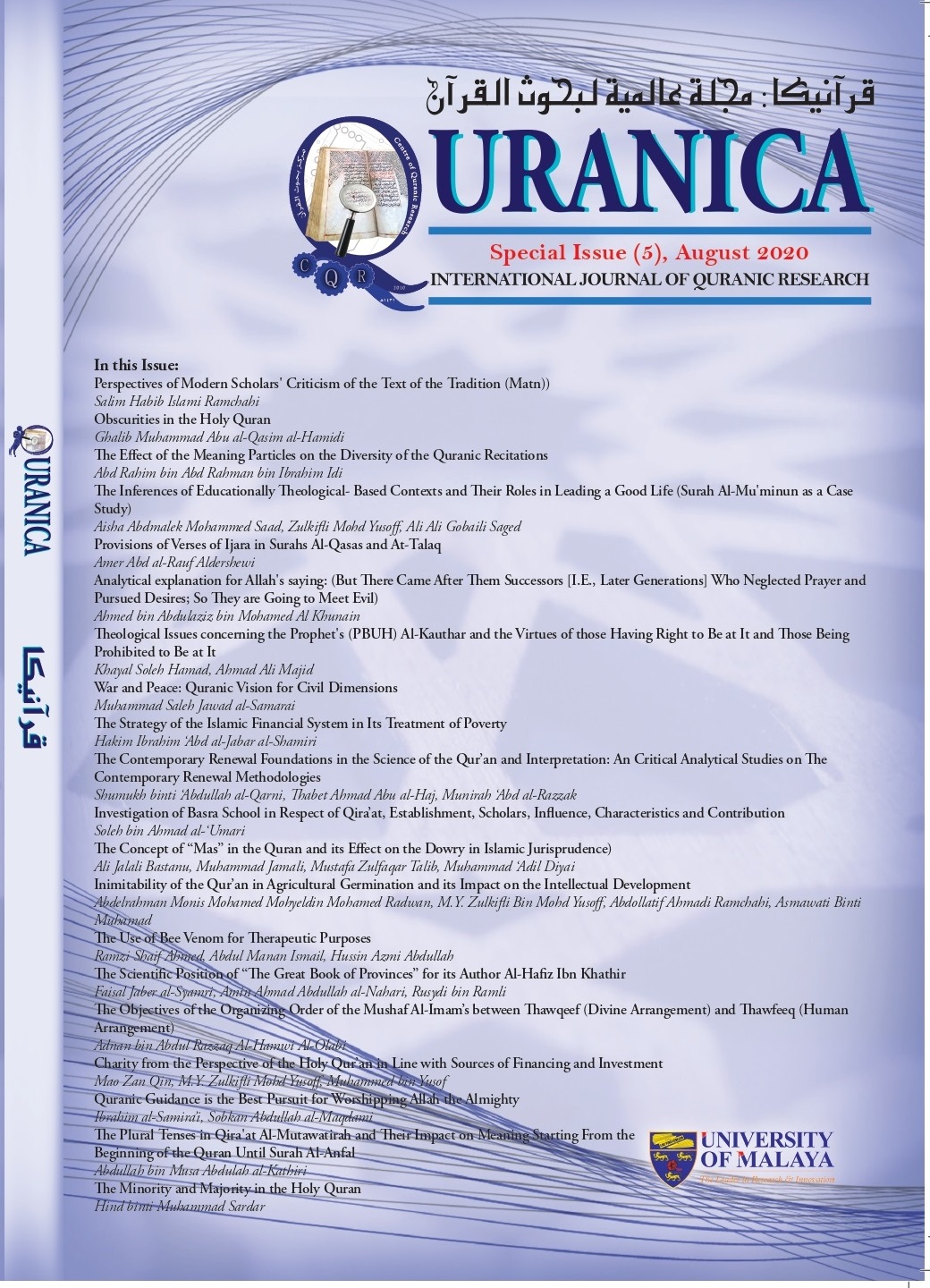Assas al-Tajdīd al-Mu'āsir fī Ulūm al-Qurān wa al-Tafsīr Dirāsat NaqdiahTahliliah li Manāhij al-Tajdīd al-Mu'āsirah
DOI:
https://doi.org/10.22452/quranica.vol12no2.19Keywords:
Foundations, Innovation, Quranic Sciences, InterpretationAbstract
The research focused on: explaining the foundations of contemporary renewal in the sciences of the Qur’an and Tafsir (accepted and perverted), which it shows the difference between the deviant and the correct renewal. The researcher relied on the inductive descriptive approach. The research aimed to distinguish between deviant renewal and the correct renewal. The most important findings of the researcher are first: the renewal of Allah’s way and a legitimate requirement and necessity imposed by the movement of time and its developments the new may be commendable and may be reprehensible. Second: The difference between acceptable and deviant renewal was clearly demonstrated in the science of the Qur’an and interpretation. And that acceptable renewal is built on firm foundations that do not nullify the roots and do not deny them. Rather, the renewal was in its light and within it a framework of ideas, not the faith. Moreover, it was a breakthrough in the field of innovation in the sciences of the Qur’an and interpretation. Where newly emerged two new science independent of the Investigations of the Sciences of the Qur'an, namely the science of Quranic gifts and stylistics. Finally, while deviant renewal was based on Western foundations and curricula that nullify the fundamentals altogether, they are preferred and misled. While deviant renewal has been based on Western foundations and approaches for it has completely nullified the fundamentals and lost the way. How can a method based on atheism be interpreted by the Book of Allah? Finally, what is new in the science of the Qur’an and interpretation is not deviated from three circles, either to be adding a new meaning that the verse tolerates, or to be a matter of deduction, or bringing human knowledge to the Qur’an.
Downloads
Downloads
Published
Issue
Section
License
Disclaimer
QURANICA makes every effort to ensure the accuracy of all its contents. However, opinions, discussions, views and recommendations are expressed in this journal do not necessarily reflect the official policy of QURANICA or views of its editors or publishers. Therefore, QURANICA and its publishers will not be liable for any controversy may be arisen. The journal reserves the right, at its sole discretion, to change its terms and conditions of publications.
Copyright
It is a condition of publication that manuscript submitted to the journal have not been published, accepted for publication, nor simultaneously submitted for publication elsewhere. By submitting a manuscript, the author(s) agrees that copyright for the article is transferred to the publisher, if and when the manuscript is accepted for publication.






